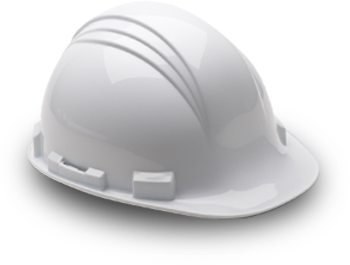Safety Engineering & Risk Analysis Division
The Safety Engineering and Risk Analysis Division (SERAD) function is to stimulate interest in and disseminate risk analysis and safety information as applied to the process of mechanical engineering.

SERAD Strategy
Mission: Advancing technological risk engineering and safety for the welfare of humanity
Vision: To be the leader in safety, risk, and reliability across engineering industries
Global Challenges: Sustainable solutions; efficient transportation; public safety, including user safety
Technology Priorities: Advanced manufacturing; robotics; clean energy
For more on our History check out SERAD: 50 Years of Progress from our 50th Anniversary.
About
The Safety Engineering and Risk Analysis Division (SERAD) was originally formed in 1991 by merging ASME's Safety Division (est. 1951) and the Risk Analysis Task Force. Its function is to stimulate interest in and disseminate risk analysis and safety information as applied to the process of mechanical engineering. Member activity has expanded to include product liability, loss prevention and occupational health.
Safety is the reduced risk achieved by successful application of engineering understanding and controls to hazards. For new products and processes, risk is identified and minimized by analysis of previous experience and conservative design.
The interests of SERAD extend across most of the other ASME Divisions. This Division works with industry, ASME Codes & Standards, and other relevant professional and regulatory organizations to discuss, review, and promote practices which lead to reduced risk and improved occupational environments.
The basic concern for human health and safety as well as the reduction in business interruptions and insurance costs makes the work of the Division increasingly important.
SERAD members include engineers conducting research and practicing engineers in risk analysis, mechanical equipment design, occupational health and safety, environmental control, toxic and explosive hazards from dusts and gases, radiation hazards, process (system) operations, design, maintenance, and testing.
Also important are ergonomics, consumer product safety, liability prevention, improvements to manufacturing processes for safety, and safety in transportation systems.
Honors & Awards
Recognition of outstanding achievement in engineering is one of the major objectives of ASME. Through its programs of honors and awards, ASME recognizes outstanding contributions to the art and science of engineering.
Division Awards
- SERAD Student Safety Innovation Challenge
- IMECE - Dinner Speaker's Plaque
- IMECE - Technical Program Representatives Plaque
- Executive Committee - Past Chair's Plaque
- Ayyub-Weichel Risk Analysis Award
- JURES Best Paper Award
Important Award Information For Recipients of Monetary Awards
Please note that honorariums cannot be distributed without receipt of applicable tax forms. If you are a recipient of a monetary award, you will be contacted by ASME staff regarding tax forms you will need to complete, as well as how to submit them to us.
Leadership
Visit SERAD Executive Committee to email leaders directly.
Past Chair, Stephen Ekwaro-Osire
Chair, Mihai Diaconeasa
Vice Chair, William Munsell
Secretary, Andrey Morozov
Treasurer, Alba Sofi
Honors & Awards, Mohammad Pourgol-Mohammad
Communications & Outreach, Ernest Kee
Technical Committee Chair, Bilal M. Ayyub
Staff Contact, April Tone
Links
Links to helpful online resources related to the division are below. If you have suggestions for other resources, please contact the division chair or ASME staff.
History of SERAD
Read about the history of the division.
ASME Landmarks Program
Landmarks, sites and collections of historic importance to mechanical engineering are designated by ASME through its History and Heritage Landmarks Program.
Events
Resources
2024 Student Paper Competition
2024 Election for SERAD Executive Committee
2023 2nd Quarter Newsletter
2023 Student Paper on Safety Innovation Challenge Contest
2023 First Quarter Newsletter
2022 Fourth Quarter Newsletter
2022 Third Quarter Newsletter
July 2022 ASME TEC Talk Slides: Artificial Intelligence-based Anomaly Detection of Technical Systems
Presented by: Andrey Morozov, University of Stuttgart, Germany and Vice Chair, Safety Engineering & Risk Analysis Division (SERAD)
2022 Second Quarter Newsletter
Call for Papers for the ASCE-ASME Journal of Risk and Uncertainty in Engineering Systems, Part B: Mechanical Engineering
2022 Quarter 1 Newsletter
Take a look at our latest updates!
4th Quarter SERAD Newsletter 2021
Please find the latest edition of the SERAD newsletter below. As always, feel free to share with your colleagues!
3rd Quarter SERAD Newsletter 2021
Enjoy the latest edition of the SERA Division's newsletter. Feel free to share with your colleagues.
Have a wonderful holiday season,
SERAD Executive Committee
ASME SERAD Newsletter-2nd Quarter 2021
Dear SERAD Community,
The enclosed is the ASME SERAD Newsletter-2nd Quarter 2021. The newsletter includes the division activities for the second quarter of 2021 along several interesting technical articles from the community members.
Regards,
Mohammad Pourgol-Mohammad, Ph.D, PE
Chair, SERAD 2020-2021
ASME-SERAD Volume 8-1st Quarter 2021 Newsletter
Dear SERAD Community,
The enclosed is the ASME SERAD Newsletter-1st Quarter 2021. The newsletter includes the division activities for the first quarter of 2021 along several interesting technical articles from the community members.
Regards,
Mohammad Pourgol-Mohammad, Ph.D, PE
Chair, SERAD